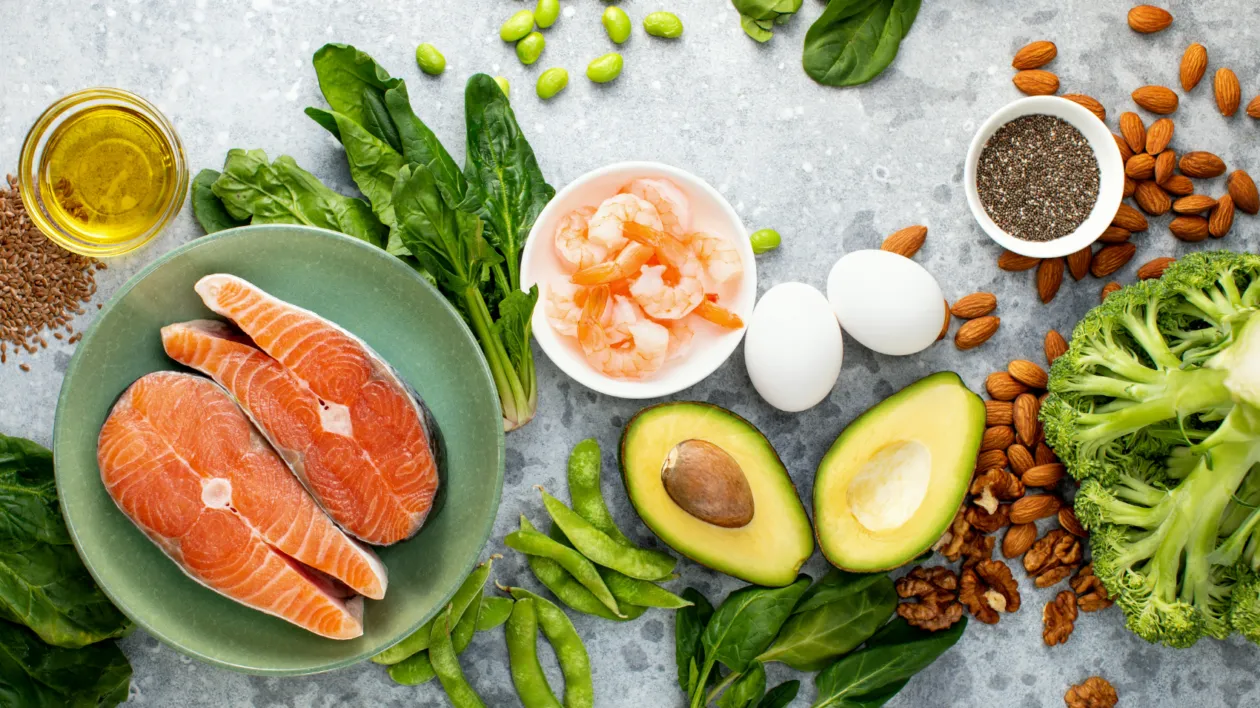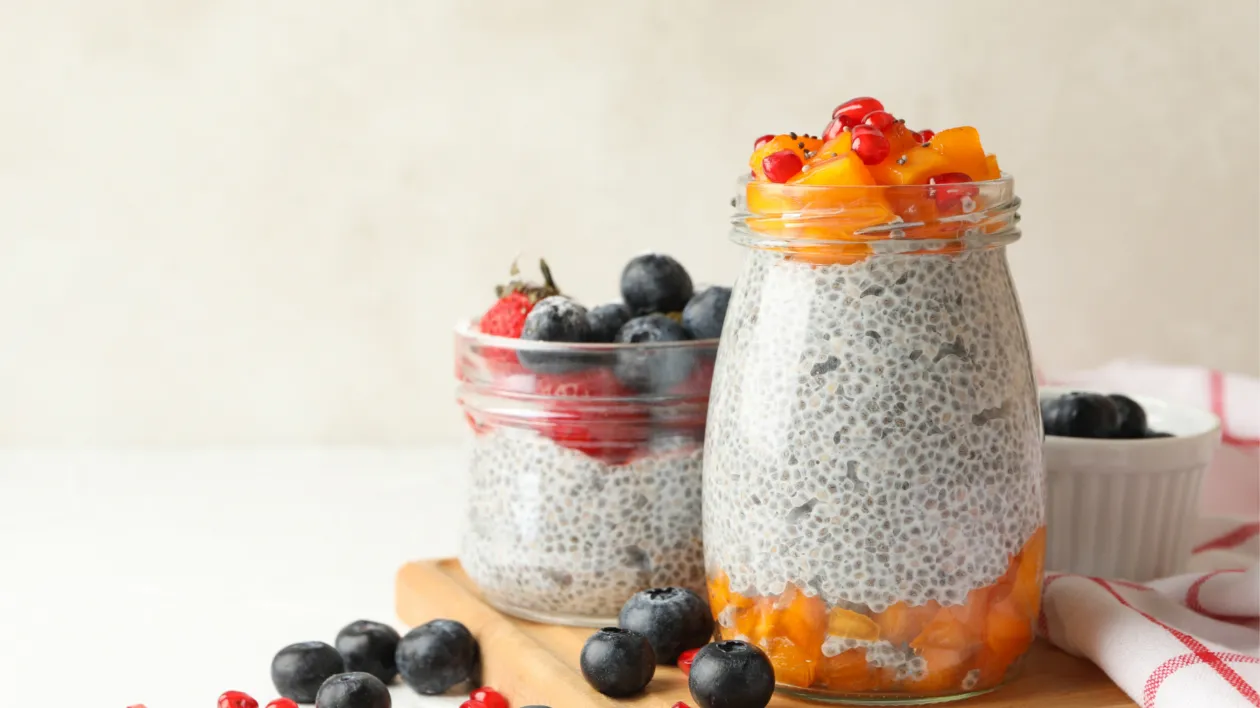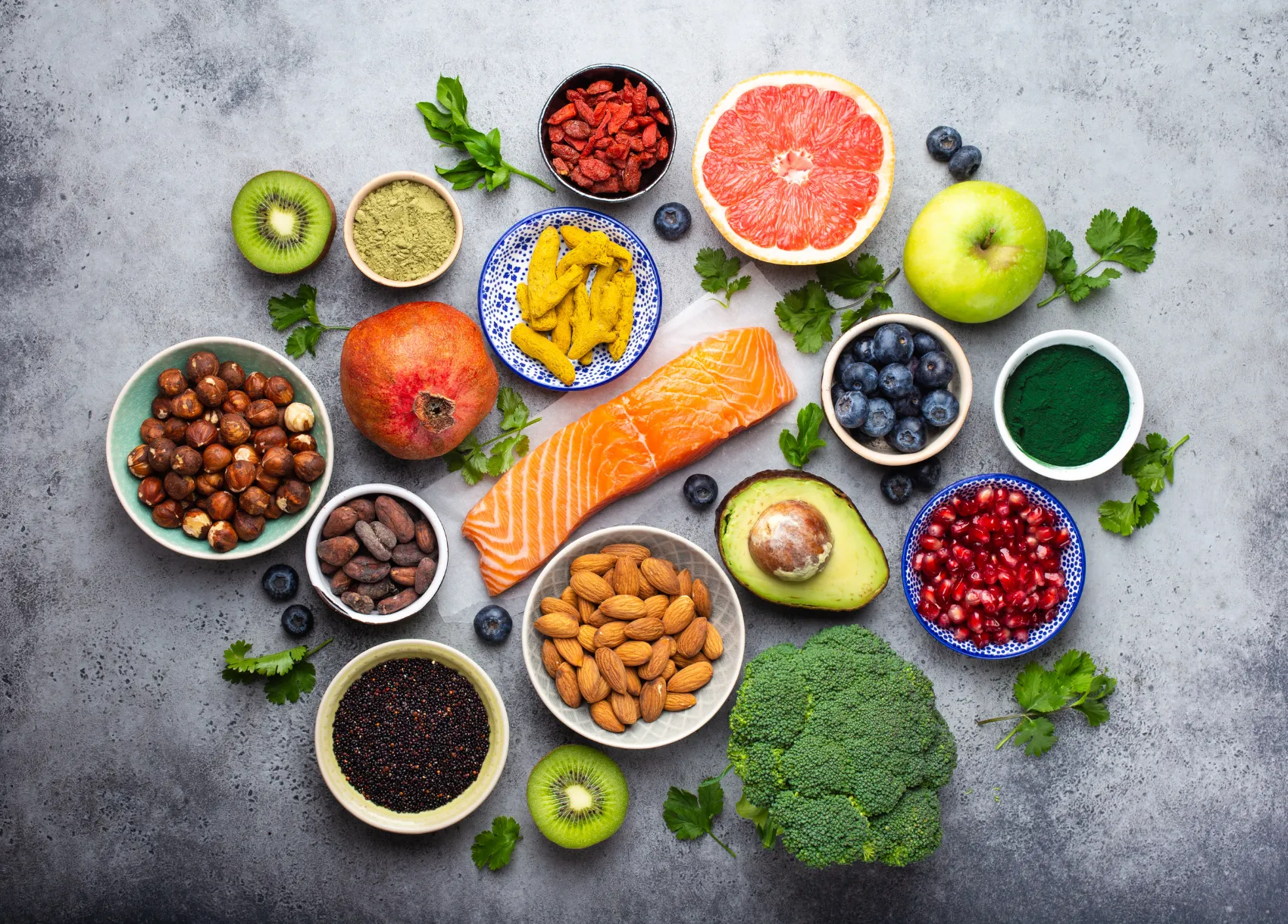Aging with Grace through Superfoods
While the years bring wisdom and experience, they also usher in changes in our bodies that require a closer look at our diets. But fear not, there’s a league of nutritional superheroes here to save the day: Superfoods! They’re not just trendy talk; they’re key players when it comes to keeping us healthy and lively both physically and mentally as we grow older.
But what exactly defines these “superfoods,” and what makes them so exceptional? We’ve delved into these celebrated foods to uncover what gives them that extra nutritional oomph and to guide you on seamlessly integrating them into your daily meals.

Shot of a group of elderly friends enjoying a run together outdoors
The Science Behind Superfoods and Aging
Superfoods are nutrient-rich foods known for their exceptional health benefits. As we age, our bodies undergo physiological changes, including a natural decline in muscle mass, bone density, and metabolic rate. Superfoods, packed with vitamins, minerals, antioxidants, and essential nutrients, act like shields against age-related health issues.
- Antioxidant Defense: Aging is associated with an increase in oxidative stress, leading to cellular damage. Superfoods, such as berries, spinach, and dark chocolate, are rich in antioxidants that help counter this stress, reducing the risk of chronic diseases and promoting cellular health.
- Bone Health: Osteoporosis and bone-related issues become more prevalent with age. Superfoods like leafy greens, salmon, and almonds provide essential nutrients such as calcium, vitamin D, and omega-3 fatty acids, supporting bone strength and density.
- Heart Health: Aging often comes with changes in cardiovascular health. Superfoods like avocados, nuts, and fatty fish contribute to heart health by lowering cholesterol, reducing inflammation, and supporting overall cardiovascular function.

Nutritional Support for Cognitive Function
- Brain-Boosting Superfoods: The aging brain benefits from superfoods rich in omega-3 fatty acids, antioxidants, and vitamins. Examples include walnuts, blueberries, and oily fish, which support cognitive function, memory, and reduce the risk of neurodegenerative diseases.
- Mood and Mental Well-being: Superfoods not only impact physical health but also play a role in mental well-being. Foods like dark leafy greens, bananas, and quinoa contain nutrients that support the production of serotonin and other neurotransmitters, positively influencing mood and mental health.

Easy Ways to Eat Superfoods
- Start with Small Changes: Incorporating superfoods doesn’t require an immediate overhaul of your diet. Begin by introducing one or two superfoods at a time.
- Power-Packed Breakfasts:
- Smoothie Sensation: Blend a variety of superfoods like spinach, berries, chia seeds, and Greek yogurt for a nutrient-rich breakfast.
- Oatmeal Upgrades: Sprinkle nuts, seeds, or berries over your morning oatmeal for added texture and nutrition.
- Lunch and Dinner Boosts:
- Salad Revamp: Add kale, spinach, avocado, or nuts to your salads for a nutrient-packed punch.
- Superfood Soups and Stews: Incorporate lentils, quinoa, turmeric, or sweet potatoes into soups or stews for a hearty and healthy meal.
- Snack Smart:
- Nutty Delights: Snack on a handful of almonds, walnuts, or pumpkin seeds for a satisfying and nutritious munch.
- Berry Bliss: Keep dried or fresh berries on hand for a sweet and antioxidant-rich snack.
Incorporating superfoods into our diets as we age is not just a choice; it’s an investment in our future selves. Remember, the key lies in variety and consistency. Strive to create a balanced diet that includes a spectrum of superfoods, providing your body with the essential nutrients it craves for optimal health. So, let’s raise our forks to a nourished and vibrant future—one superfood at a time.
To learn how Ivy Living incorporates superfood into our culinary program contact us today and join a community near you for a complimentary meal.




